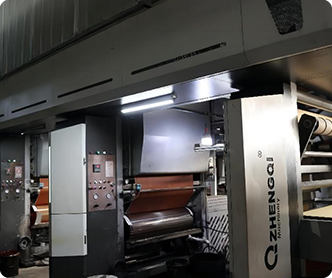- Home
- white contact paper on cabinets manufacturer
Sep . 24, 2024 22:43 Back to list
white contact paper on cabinets manufacturer
The Importance of Sustainable Practices in Cabinet Manufacturing
In an era where sustainability has become a cornerstone of modern manufacturing, the cabinet industry is no exception. As consumers grow increasingly aware of the environmental impact of their purchasing decisions, cabinet manufacturers are being called to action to implement sustainable practices. This article explores the significance of sustainability in cabinet manufacturing and how companies can adapt to meet these evolving consumer expectations while maintaining quality and efficiency.
Understanding Sustainability in Cabinet Manufacturing
Sustainability in cabinet manufacturing refers to the practices that minimize environmental impact while promoting the conservation of resources. This concept encompasses a wide range of practices, including the use of eco-friendly materials, energy-efficient production processes, waste reduction, and sustainable supply chains. The goal is not only to meet regulatory standards but to create products that contribute positively to the environment.
The Shift Towards Eco-Friendly Materials
One of the most significant changes in the cabinet manufacturing industry is the shift towards eco-friendly materials. Traditional wood sources, particularly those from unsustainable logging practices, contribute to deforestation and habitat loss. In contrast, manufacturers are increasingly turning to certified sustainable woods, such as those sourced from the Forest Stewardship Council (FSC). Additionally, composite materials and recycled content are gaining traction as consumers seek products that reduce their environmental footprint.
Beyond wood, manufacturers are also exploring the use of non-toxic finishes and adhesives. Products that contain volatile organic compounds (VOCs) can adversely affect indoor air quality. By opting for low-VOC or VOC-free alternatives, manufacturers can produce healthier living environments for consumers while reducing their ecological impact.
Energy Efficiency in Production
Another critical aspect of sustainability in cabinet manufacturing is energy efficiency. By implementing energy-efficient technologies and practices in their production processes, companies can significantly reduce their carbon footprint. Many manufacturers are investing in advanced machinery and automation that not only optimize production but also minimize energy use. For instance, utilizing CNC (Computer Numerical Control) machines can enhance precision and reduce waste, leading to both economic and environmental benefits.
white contact paper on cabinets manufacturer

Moreover, embracing renewable energy sources, such as solar or wind power, can further reduce reliance on fossil fuels
. Some manufacturers have made the switch to solar panel systems on their manufacturing facilities, promoting not only sustainability but also cost savings over time.Waste Reduction and Recycling
Waste reduction strategies are vital in any sustainable manufacturing model. In the cabinet industry, the production process can generate significant waste materials. By adopting lean manufacturing principles, companies can streamline their operations to reduce excess waste. This may involve optimizing cutting patterns to maximize material usage or recycling scrap materials into new products.
Furthermore, manufacturers can implement programs to encourage recycling among consumers. For instance, creating a take-back program for old cabinets or offering incentives for recycling can promote a circular economy mindset.
Building a Sustainable Supply Chain
Finally, sustainable cabinet manufacturing relies heavily on the entire supply chain. Manufacturers should select suppliers who adhere to environmentally friendly practices, from sourcing raw materials to packaging and distribution. Building strong partnerships with like-minded businesses can enhance overall sustainability efforts and promote a shared commitment to environmental stewardship.
Conclusion
The cabinet manufacturing industry is increasingly recognizing the importance of sustainability as consumer awareness grows. By embracing eco-friendly materials, enhancing energy efficiency, implementing waste reduction strategies, and building sustainable supply chains, manufacturers can successfully adapt to this changing landscape. Not only does this commitment to sustainability benefit the planet, but it also aligns with the values of modern consumers, ultimately leading to increased customer loyalty and business success. As we move toward a more sustainable future, cabinet manufacturers have a unique opportunity to lead the charge in creating environments that are not only beautiful but also responsible.
Latest news
-
65gsm ML1085 Paper Specs: Lightweight & Durable for Printing
NewsJul.20,2025
-
High-Quality Bathroom Cabinet Contact Paper – Durable & Stylish Leading Suppliers, Exporters, Manufacturers
NewsJul.08,2025
-
Premium Wood Contact Paper for Desk – Reliable Suppliers & Exporters
NewsJul.08,2025
-
Premium Contact Paper for Table Top – Durable & Stylish Surface Solution from Leading Manufacturer
NewsJul.07,2025
-
Duplex Board with Grey Back - Reliable Supplier & Competitive Price Manufacturer & Exporter
NewsJul.07,2025
-
Premium White Contact Paper on Cabinets – Trusted Exporters & Suppliers
NewsJul.06,2025

